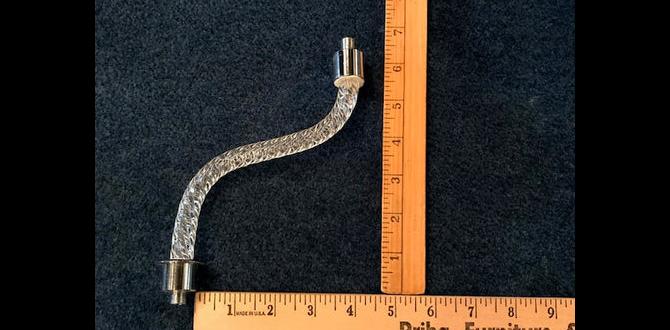Have you ever been in a situation where you really needed to go, but couldn’t? It’s a common problem. Maybe you were stuck in a long meeting or on a road trip. Holding your urine might seem harmless, but is it bad for you? This question is important for many of us. Some people believe that waiting can be fine, while others warn against it.
Did you know that your bladder can actually stretch? This can make it feel less urgent at times. But, what happens if you hold your urine for too long? It might surprise you to learn that it can lead to problems. Most of us know when we have to go, but ignoring that feeling is not always a good idea.
In this article, we will explore the effects of holding your urine. We will look at what can happen to your body and whether it’s risky to keep it in. So, are you curious about the truth behind this common habit? Let’s dive in and find out!
Is It Bad To Hold Your Urine? Understanding Risks And Effects

Is It Bad to Hold Your Urine?
Holding your urine for too long can lead to health issues. It might stretch your bladder, causing pain and infections. Imagine waiting too long during a car trip—how uncomfortable it gets! Fun fact: your bladder can hold about two cups of urine comfortably. Ignoring the urge could also weaken bladder muscles over time. So, listening to your body is crucial for good health. Make sure to take breaks when nature calls!Understanding Urinary Health
The function of the urinary system. Common urinary health issues.The urinary system helps our bodies get rid of waste. It filters blood and makes urine. This process keeps us healthy by balancing water and salt. Some common issues can affect urinary health. These include:
- Infections: These can cause pain and need treatment.
- Kidney stones: Hard pieces form and can be very painful.
- Bladder problems: These can lead to incontinence or urgency.
Understanding these issues helps us care for our urinary health better.
What happens if you hold your urine too long?
Holding your urine can lead to problems. It may cause discomfort and increase the risk of infections. Long-term holding could harm your bladder.
The Science Behind Urine Storage
How the bladder works. Capacity and pressure regulation.The bladder is like a party balloon that stretches as it fills up with urine. Normally, it can hold about 16 ounces, which is roughly the size of a big soda can. As the bladder fills, it sends signals to your brain saying, “Hey, it’s getting crowded in here!” This helps you manage when to go. If you hold it too long, the pressure can make you feel like a soda that’s been shaken too much—ready to burst! It’s best to listen to your body and not play the waiting game.
| Bladder Facts | Details |
|---|---|
| Normal Capacity | 16 ounces |
| Pressure Signals | Communicates to the brain |
| Risk of Holding | Can cause discomfort and health issues |
Potential Risks of Holding Urine
Shortterm effects on bladder health. Longterm consequences and complications.Holding in your pee might seem harmless, but it’s like keeping a balloon filled with too much air. Short-term, it can cause discomfort and make your bladder very unhappy. Over time, if you keep this up, you risk long-term damage to your bladder. You may even face complications like infections or incontinence. So, let that bladder breathe and take those bathroom breaks like a pro!
| Short-term Effects | Long-term Risks |
|---|---|
| Pain and discomfort | Infections |
| Increased urge | Bladder stretching |
| Stress on bladder | Incontinence |
Signs You Might Need to Use the Bathroom
Physical signals from your body. Psychological factors influencing urgency.Our bodies give clear signs when it’s time to visit the bathroom. You might feel a sudden urge to go. Stomach cramps are common too. You may find yourself tapping your feet or fidgeting. Sometimes, your mind plays tricks. Stress can make you feel like you need to go urgently. Being excited or nervous can also increase the urge. Watch for these signs:
- Feeling a strong urge
- Stomach discomfort
- Fidgeting or restlessness
- Increased anxiety or stress
Listening to your body helps you stay comfortable!
How can you tell when you need a bathroom?
You may notice your body sending signals. Pay attention to sudden urges, discomfort in your stomach, and feelings of anxiety. These signs mean it’s time to find a restroom! Your body knows best.
Situational Factors: When Holding It May Be Necessary
Social and environmental influences. Professional settings and challenges.Sometimes, you find yourself in a tough spot. Imagine you’re at a social event, and there’s no bathroom in sight. It can be hard to excuse yourself for a quick break. Social norms can be tricky, right? In professional settings, the pressure is even higher. You can’t just run to the restroom during an important meeting! So, you hold it in. But how long is too long? Not all heroes wear capes; some just have a strong bladder!
| Situational Factors | Challenges Faced |
|---|---|
| Social Events | Fear of missing out on fun |
| Workplace | Professionalism during meetings |
It’s always better to take a break! Holding it in can lead to discomfort and other issues. Know your limits and prioritize your health before anything else. After all, no one wants to have a “bladder emergency” become the next office gossip!
Healthy Practices for Urine Management
Recommended bathroom habits. Hydration and its impact on urinary health.Using the bathroom regularly is essential for good health. Try to visit the restroom when you feel the urge. This helps avoid discomfort later. Drink plenty of water. Staying hydrated keeps your urine clear and healthy. Aim for about eight glasses a day. Here are some tips:
- Listen to your body.
- Practice good hygiene.
- Limit sugary drinks.
Keeping up these habits can keep you feeling great!
Why Is Staying Hydrated Important?
Staying hydrated helps your kidneys function properly and prevents infections. Drinking enough water also dilutes your urine, reducing the risk of stones and other issues.
When to Seek Medical Attention
Identifying concerning symptoms. Conditions that may arise from habitual retention.It’s important to know when to call the doctor. If you feel pain when urinating or see blood, don’t wait! These symptoms could mean trouble. Holding your pee can lead to conditions like urinary tract infections (UTIs) or even kidney damage. Yikes! Wishing on a star won’t fix these. If things get weird or uncomfortable, it’s better to seek help early. Remember, it’s never too late to say “Help!” before your bladder bursts!
| Symptoms to Watch For | Possible Conditions |
|---|---|
| Sharp pain while urinating | Urinary Tract Infection (UTI) |
| Blood in urine | Kidney stones |
| Feeling very bloated | Bladder distension |
| Frequent urges to urinate | Overactive bladder |
Common Myths and Misconceptions
Debunking myths about urine retention. Clarifying misconceptions about bladder health.Many people believe that holding urine is okay, but this is not true. Some think it helps with bladder control. Others believe it can’t cause problems. Let’s clear up some myths:
- Holding urine can lead to infections.
- It may weaken the bladder muscles.
- Ignoring the urge can harm your kidneys.
Taking good care of your bladder is important. Always listen to your body. Regular bathroom breaks are key to staying healthy.
Is it bad to hold your urine?
Yes, holding your urine can cause health problems. It may lead to infections and bladder issues. Always try to go when you need to.
Conclusion
In conclusion, holding your urine can be bad for your health. It may lead to problems like infections or bladder issues. Always listen to your body and use the bathroom when you need to. If you’re curious about this topic, think about reading more or talking to a doctor for more advice. Taking care of your bladder is important!FAQs
What Are The Potential Health Risks Associated With Frequently Holding Your Urine For Extended Periods?Holding your urine for a long time can be bad for your health. It can cause pain in your belly or lower back. If you keep doing it, your bladder might not work well. You could also get infections in your urine. Always listen to your body and go when you need to!
How Does Holding Urine Affect Bladder Function And Overall Urinary Health?When you hold your urine for too long, it can be bad for your bladder. Your bladder can stretch too much, which might make it weak. This can make it harder for you to control when you need to go. If this happens often, it can cause problems with your bathroom habits. It’s best to go when you feel the urge.
Are There Certain Situations Where It’S More Dangerous To Hold Your Urine Than Others?Yes, some situations can be more dangerous to hold your urine. For example, if you are sick or have a urinary infection, it’s better to go as soon as you can. Holding it too long can hurt your bladder. Also, if you’re in a place where it’s hard to find a bathroom, like a long car trip, try to stop when you need to go. Always listen to your body!
What Are The Signs That You Should Not Ignore When It Comes To Needing To Urinate?If you feel pain or burning when you need to urinate, that’s a sign to pay attention. You should also notice if you have to go very often, even if you don’t drink much. If your urine looks cloudy or smells bad, that could mean something is wrong. Finally, if you can’t hold it and can’t get to the bathroom in time, you should tell an adult.
How Can Chronic Retention Of Urine Impact Kidney Health Over Time?When you hold your pee for too long, it can cause problems. Your kidneys help filter your blood and make urine. If urine stays in your bladder, it can cause infections. Over time, this can make your kidneys weak or damaged. Taking care of your bladder and peeing when you need to helps keep your kidneys healthy.








